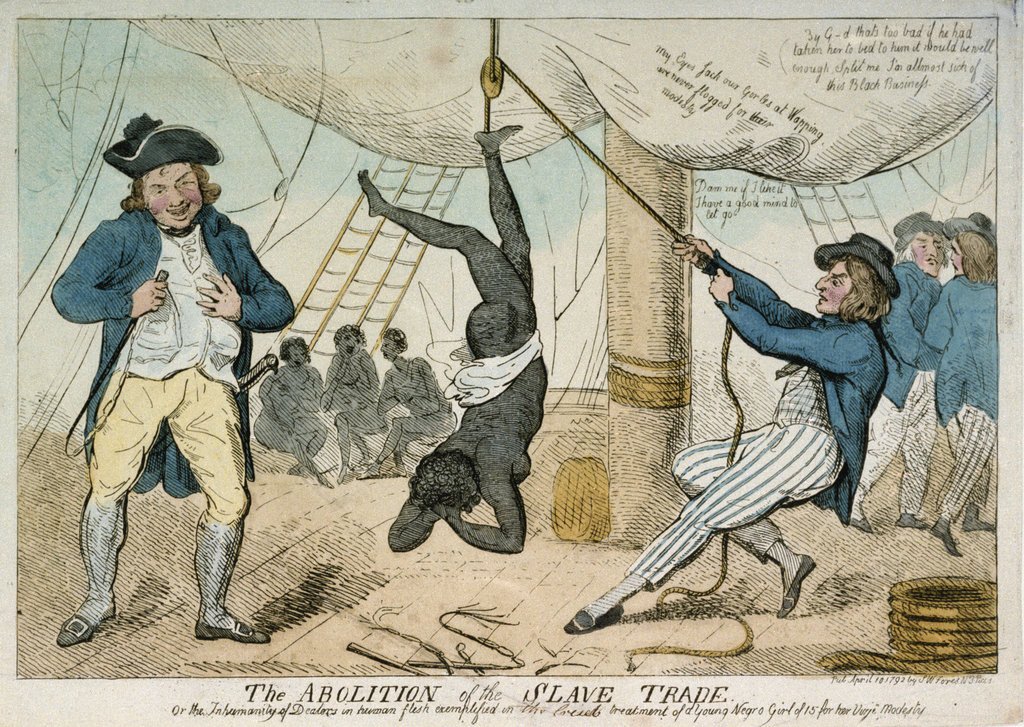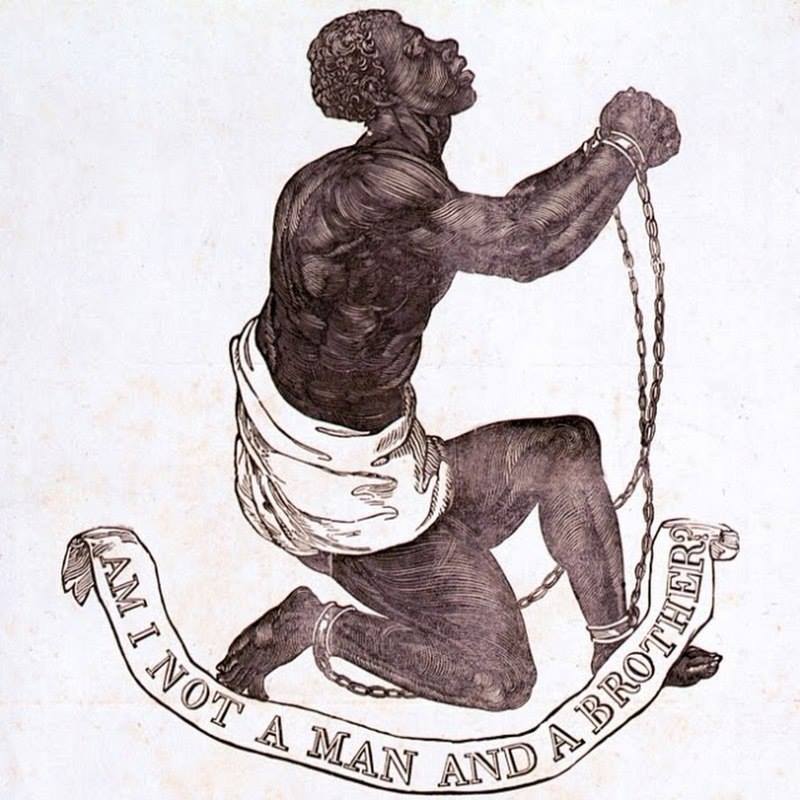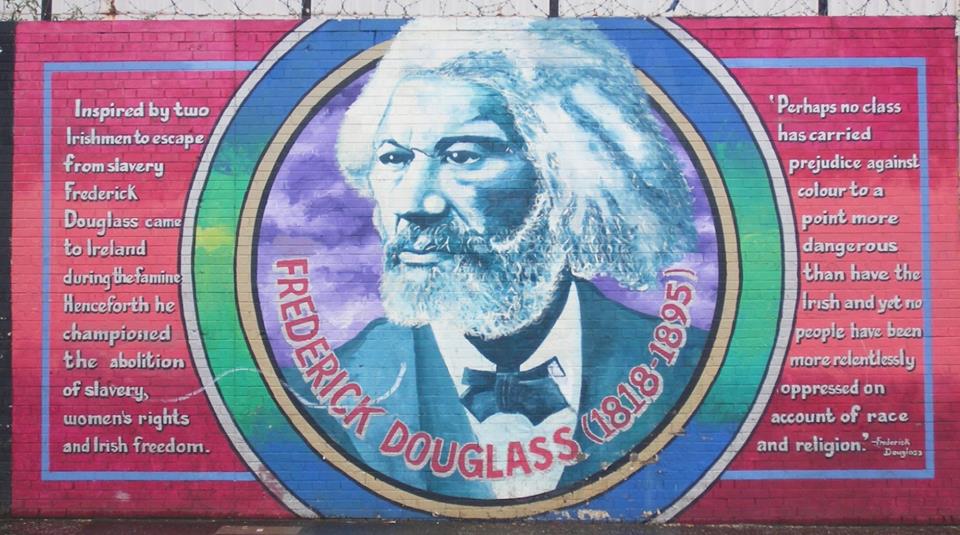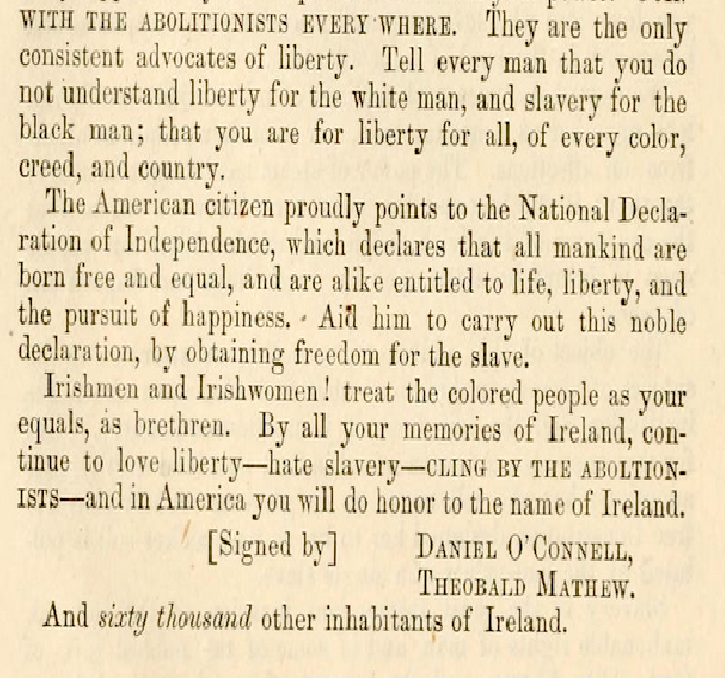On Saturday the 23rd June the East Wall History Group & the Alternative Visions Oral History Group will host the 2018 Sarah Lundberg Summer School. Each year the event is held in honour of our friend and colleague Sarah Lundberg, an Archivist, Historian and publisher who tragically passed away four years ago. This is a free event , and will run from 11am to 4.30 pm at the Sean O’Casey Theatre , East Wall.

The Transatlantic slave trade was responsible for the forced removal and enslavement of somewhere between 12 to 15 million Africans. The majority of these were transported to the Americas and the Caribbean. Sold into inhumane and brutal bondage, many would also die due to the horrific conditions of the voyages. All the major European countries were involved at some stage, but Britain would emerge as the largest slave trading nation in the world. Despite the great wealth and prosperity generated, a powerful abolition movement emerged and consistently challenged the trade. While Ireland was part of the United Kingdom at this time, our main ports at Belfast and Dublin did not significantly engage with the trade.
This year, the Sarah Lundberg Summer School will look at Ireland and the Trans Atlantic Slave Trade. In a wide range of talks , we will look at how slavery literally helped shape the United States, how Irish Radicals rejected the trade , how a leading abolitionist toured Ireland & found common cause with people here and we will also hear how in Bristol locals are still challenging the slave trading legacy of one of the city’s founding fathers.
The topics to be discussed are as follows:
“Compromising Democracy to Build a Nation: America’s Path to Civil War” -
The period from 1800 up to 1861, when the American Civil War began, was characterized by a series of actions and reactions regarding the expansion of slavery, which redefined the idea of American freedom in the process.Each time the country physically expanded, the issue of slavery had to be addressed: Was it going to be allowed in a territory? Was a new state going to enter the union as a slave state or a free state?As these issues and others were addressed and compromised on, there was a reaction from those who favoured slavery – the Slave Power – and from those who didn’t –Abolitionists. These actions and reactions continued until finally, America reached a point at which compromise was no longer possible, splitting the nation in two in 1861.
(Speaker: Cecelia Hartsell)
‘Frederick Douglass in Ireland: ‘The Black O’Connell”. -
In 1845, the escaped slave, author and abolitionist Frederick Douglass arrived in Ireland as part of a lecture tour to promote the anti slavery movement. He travelled a country which was on the brink of famine and the Great Hunger, and shocked listeners with his graphic descriptions of torture and mistreatment of African slaves in America. He was inspired by, and also inspired ‘the Liberator’ Daniel O’Connell, and was impressed with how his own message was received, but equally shocked by the terrible poverty he witnessed here.
(Speaker: Laurence Fenton)
“Your humble servant but not yet your slave: Belfast radicals and the slave trade” -
Many port cities in England embraced the slave trade, and the merchant classes of Cities such as Liverpool, London and Manchester enjoyed the prosperity it brought. Though it had a comparable capacity, the Port of Belfast did not follow this path. A centre for Protestant radicals and Republicanism, this was a significant factor in the rejection of the Trans Atlantic slave trade. This talk will explore how Irish radicals responded to the ideals of abolitionism but were also divided on the question of slavery itself, despite their republicanism.
(Speaker: Fergus Whelan)

“Edward Colston – Bristol’s ‘merchant prince’, ‘moral saint’ and slave trader” -
The Countering Colston campaign was launched in Bristol in 2015 to challenge the celebration, commemoration and memorialisation of the city father and slave-trader Edward Colston (1636-1721). Its primary aim was to uncover and popularise the real history of Colston and to expose the contradictions in institutions who continue to defend his dual status as ‘merchant prince’ and ‘moral saint’.
( Speaker: The Bristol Radical History Group)
Contributors:
Cecelia Hartsell is a researcher of American history, specialising in twentieth-century war and society. She is a graduate of Mount Holyoke College and is completing her doctorate in American History at Fordham University in New York City.
Laurence Fenton is a writer and editor living in Cork. He is the author of four history books, including two on Frederick Douglass.
Fergus Whelan is a former officer of the Irish congress of Trade Unions and now a full- time historian with a focus on the history of Irish radicalism, Protestant Dissent and the United Irishmen. His books include “Dissent into Treason: Unitarians, King-killers and the Society of United Irishmen” (2010) and “God Provoking Democrat: The Remarkable Life of Archibald Hamilton Rowan” (2015).
Each year the event is held in honour of our friend and colleague Sarah Lundberg, an Archivist, Historian and publisher who tragically passed away four years ago. Each year she is remembered by a short speech from those who worked with her . This year we are delighted to announce that Rosa Whelan , who was a student in Sarahs creative writing group at Mount Temple Comprehensive school, will share her memories of Sarah.
A light lunch will be provided .
All welcome to this FREE EVENT.
Tickets available here : https://www.eventbrite.ie/e/belfast-boston-bristol-ireland-and-the-african-slave-trade-tickets-45413696589
sarahlundbergsummerschool@



